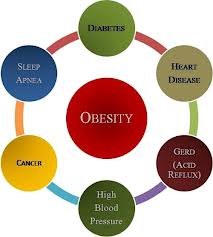Popular Science: Does our immune system have the ability to fight off obesity?
Adenovirus 36 was first isolated in Germany in 1978 and a positive correlation between abdominal fat and the presence of Adv36 antibodies in the blood was found. The impact of Adv36 infection on weight intervention was the aim of the study held on Department of Biochemistry at our faculty.
The problems of obesity in children and adolescents have grown considerably in recent years. They are associated with numerous health risks such as an increased likelihood of heart disease, high blood pressure, diabetes, respiratory problems or hormonal changes.
The study conducted by Hana Zamrazilová in cooperation with the Department of Biochemistry studied 184 obese girls. It is so far the largest study concerning Adv36 status with the respect to weight loss. Similar studies had been conducted only on animals insofar.
The girls underwent a 4-week inpatient weight management program, which was strictly medically supervised (by paediatricians, dietitians, physiotherapists and psychologist), in a specialized centre. The daily calorie intake was individually modified to age and BMI in order to ensure the recommended daily consumption of all essential nutrients and appropriate macronutrient balance. Fats represented up to 30%, carbohydrates 50 – 55% and proteins 15 % of daily intake. The girls did aerobic exercises for 3-4 h per day (jumping, running, swimming…).
65 girls from the total sample screened positive for Adv36 antibodies. There was no significant
 Riscs connected to obesity. Source: Dr. John Anderson
Riscs connected to obesity. Source: Dr. John Anderson
difference in dietary intakes between Adv36-positive and Adv36-negative obese girls before initiation of the weight management program. The biggest difference in dietary intakes was 86 kcal, which could be compared to the small glasses of Coca-Cola.
The results have shown that the Adv36-positive obese girls undergoing the 4-week program had a greater decrease of abdominal (dangerous) fat, but at same time experienced preservation of subcutaneous fat. It might be said that the antibody-positive girls had a better metabolic profile after the intervention, and by extension a better glycaemic control, lipid profile and liver enzyme activity. In contrast to antibody-negative girls, it led to decrease in health risks related to obesity.
Does this all mean that our immune system armed with Adv36-antibodies is better equipped to fight off the health risks caused by obesity? Future studies will hopefully help us answer this question.
Klára Tlačbabová
Zamrazilová, H.; Aldhoon Hainerová, I.; Atkinson, R.; Dušátková, L.; Sedláčková, B.; Lee, Z.; Kunešová, M.; Hill, M.; Hainer, V.; Adenovirus 36 infection: a role in dietary intake and response to inpatient weight management in obese girls. International Journal of Obesity, 2015, Roč. 39, č. 12, s.1757-1760. DOI: 10.1038/ijo.2015.167
Document Actions